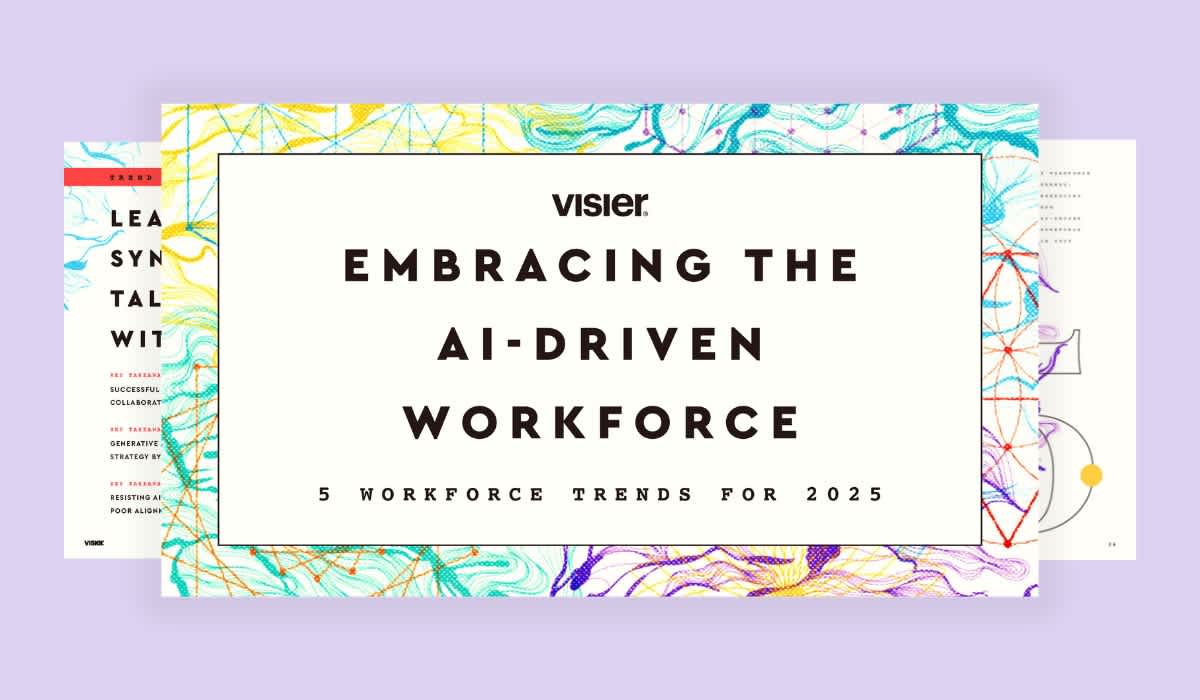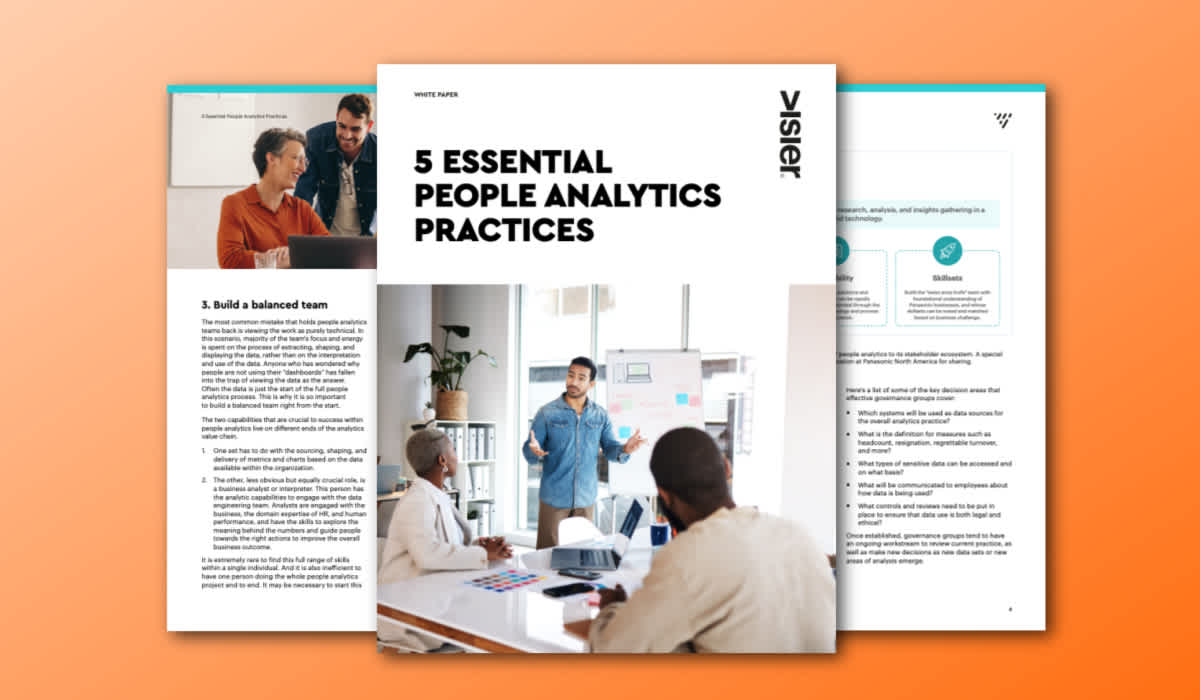Key Takeaways from Outsmart Local London: 'Own Your People Data Strategy'
Explore highlights from the first annual Outsmart Local EMEA in London, where HR leaders shared strategies for using people data and AI insights to drive business impact.
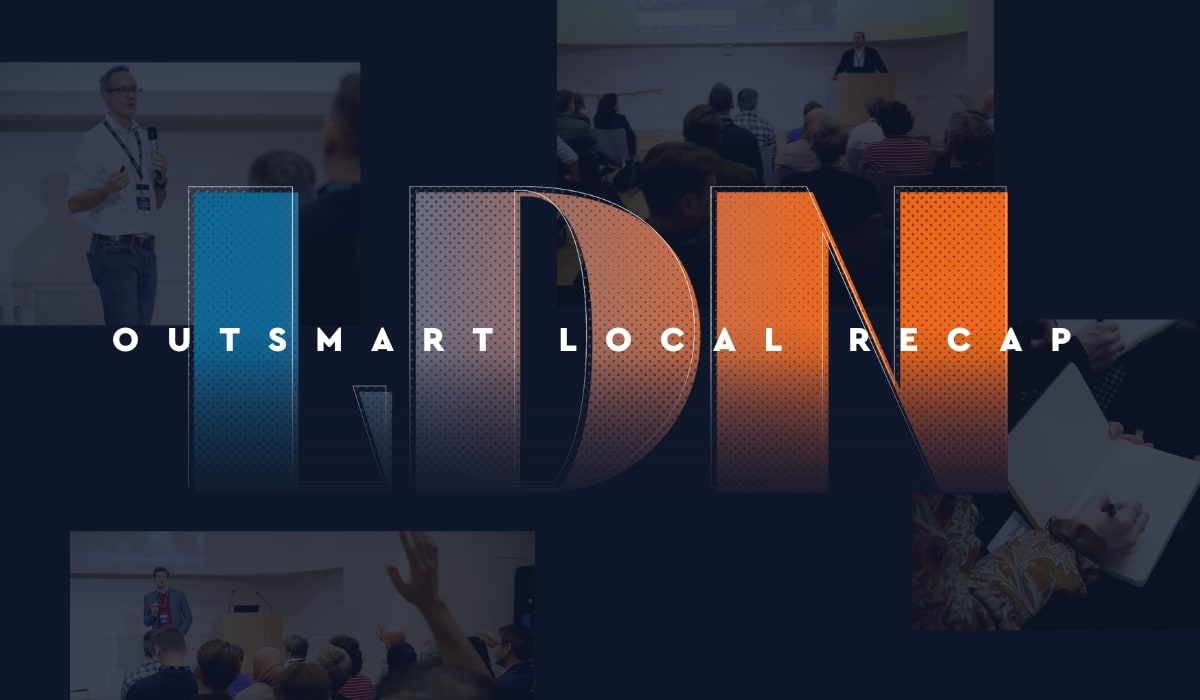
The inaugural Outsmart Local EMEA was held on December 5 at Carlton House Terrace in the prestigious Pall Mall district in Central London, a stone’s throw from Trafalgar Square and Buckingham Palace.
People analytics practitioners, HR technology professionals, and delegates seeking insights into establishing data-driven HR programmes joined to hear from David Green (Insight 222), Nick Hudgell (Sanofi), and a panel of professionals from Deloitte, Phoenix Group, and Natwest plc.
With a central theme of “Owning your People Data Strategy,” the event highlighted the key characteristics of top-performing organisations that leverage data to inform strategy and drive business impact. Participants benefited from roundtable discussions and networking sessions where they shared learnings with their peers.
![[VIDEO] Outsmart Local London 2024 Recap](https://images.ctfassets.net/lbgy40h4xfb7/4bKBKsGyKw4kljtNWnmtRT/1e45702db1a9e499e8505bfbba6870cf/emea-outmsart-london-recap.jpg?w=1200&h=700&fl=progressive&q=50&fm=jpg)
Key themes from Outsmart Local London
1. Data governance and foundation
Effective people analytics relies heavily on robust data governance, encompassing data quality, ownership, and architecture. Establishing clear processes, responsibilities, and a strong data foundation is crucial for enabling valuable insights and strategic decision-making.
2. Strategic alignment and value
Analytics initiatives must be closely aligned with overarching business strategies. Alignment ensures that insights generated are relevant to key business challenges, driving measurable value and impact.
3. AI and automation
AI and automation technologies are transforming people data analysis by streamlining processes, enabling deeper insights, and enhancing efficiency. Organisations are increasingly exploring the potential of AI to optimise workforce management and improve decision-making.
4. Skills and workforce planning
The evolving nature of work necessitates a focus on ongoing skills-based workforce planning. A data-driven HR strategy plays a vital role in identifying critical skills, assessing skill gaps, and developing strategies for talent development and acquisition. Using generative AI for people analytics, organsations can analyze skills and adjust workforce plans with the speed and agility required in today's labor market.
5. Change management and adoption
Successful implementation of people analytics initiatives requires effective change management strategies. Building data literacy, fostering a data-driven culture, and ensuring widespread adoption of insights are essential for maximising the value of analytics practices.
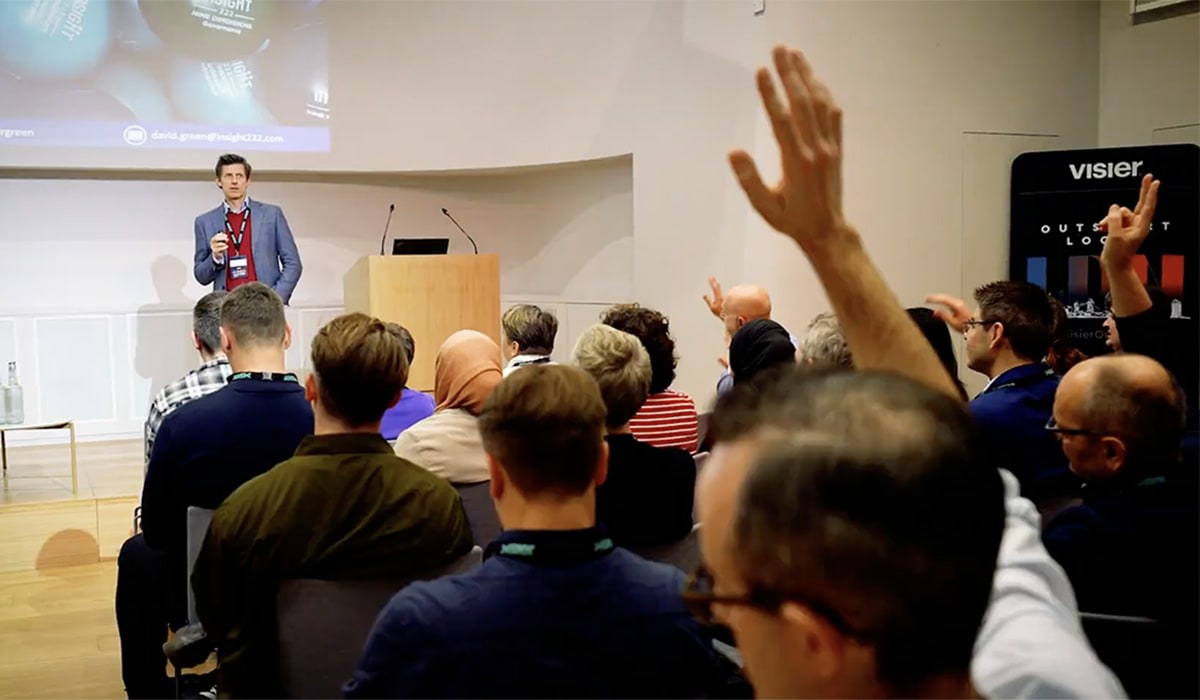
Keynote highlights strategic importance of people analytics
David Green of Insight 222 took the stage, emphasising the growing importance of people analytics in addressing today's complex business challenges. He particularly focused on the need for strategic alignment between people analytics initiatives and overarching business goals, the critical role of data governance and strong data foundations, and the transformative potential of AI and automation in people analytics.
Insight 222’s research findings have indicated a gap between the democratisation of people analytics insights and their actual adoption within organisations. To bridge this gap, strategies such as investing in data literacy and training, fostering a data-driven culture, and ensuring user-friendly analytics products must be adopted. The importance of prioritising impactful projects and measuring the value delivered by people analytics to demonstrate its contribution to business success was also illustrated, with the goal of driving toward what Insight 222 term an “A-team”.
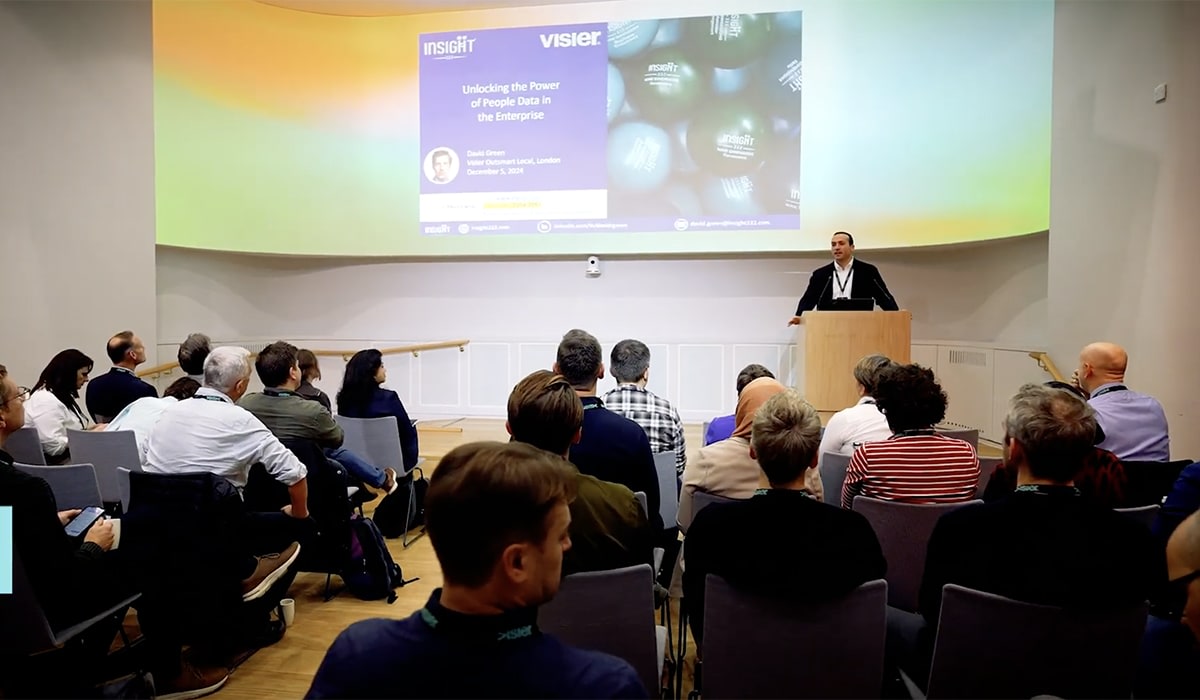
Session spotlight: Visier's product roadmap
Mike Everitt, Visier's Solution Consulting Manager in EMEA, gave the delegates in the room a “sneak peek” of the Visier product roadmap. He highlighted developments to help organisations gain a Workforce AI Edge and benefit from Visier’s brand new Analytic AI Agent platform.
He shared how Visier enables businesses to:
Answer critical workforce questions in real-time, delivering insights that influence key decisions directly in the flow of work.
Connect HR data to core business metrics like sales, service, and finance metrics to uncover and demonstrate the workforce's direct impact on business outcomes.
Boost productivity and efficiency with AI and automation, enabling teams to continuously adapt and optimise in an AI-driven economy.
Save the date for Outsmart Local London 2025
Outsmart Local will soon return to London in 2025 with an even bigger presence! Keep an eye out for details on how to register soon.

